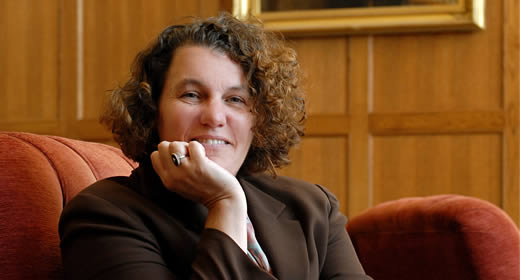
In a new paper for Brookings, "The Trouble with Student Loans? Low Earnings, Not High Debt," Susan Dynarski debunks the popular notion that more student debt leads to higher student loan default rates.
In fact, research shows that default rates are highest among individuals with smaller loan balances. Students borrowing under $5,000 default at a rate of 34 percent, compared to 18 percent for those borrowing more than $100,000.
“The data makes clear that graduates of four-year colleges, including those who go on to graduate school are not at the root of high default rates,” said Dynarski in the recent Forbes article, "The Best Way To Fix The Student Debt Crisis (And It's Not Free Tuition)." “If we want to reduce distress and default among students borrowers, our poster child should not be the graduate of an elite, four-year institution, but rather a student who dropped out of a non-selective college.”
This group of students is particularly vulnerable to loan default because they often grapple with unemployment and thus cannot afford to make even small monthly loan payments. Dynarski points out that these individuals are poorly served by the current income-driven repayment structure.
“For those patching together several part-time jobs, hours and earning can bounce around weekly. In [Pay As you Earn], and all the other income-based repayment programs, every change to earnings requires a new application to adjust the loan payment. Those who most need a helping hand are probably least able to navigate this bureaucracy,” she said.
One proposed policy solution that Dynarski has advocated for would automatically enroll borrowers who are late on payments in income-based repayment, or adjust loan payments each pay period, similar to the current income-tax withholding system.
Susan Dynarski is a professor of public policy at the Gerald R. Ford School of Public Policy, a professor of education at the University of Michigan's School of Education, and a professor of economics at the University of Michigan's College of Literature, Science, and the Arts. She is co-director of the Ford School’s Education Policy Initiative, which engages in applied, policy-relevant research designed to improve educational achievement and outcomes.